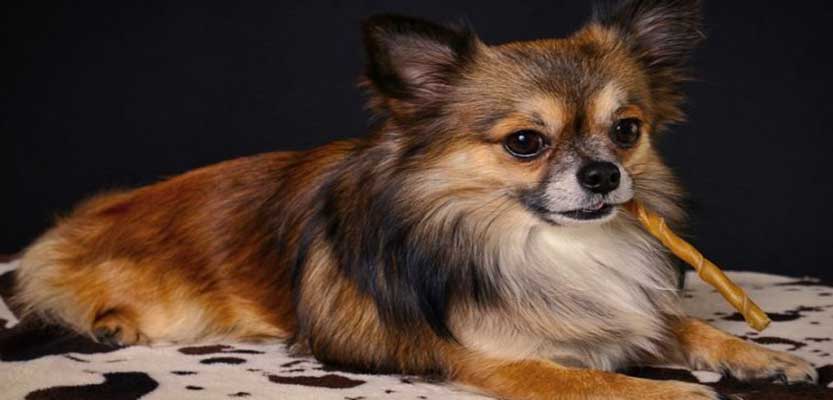
When most of us think of a Chihuahua, we envision a small dog with little or no hair. However, this breed also has a lesser-known subtype known as the long-haired Chihuahua. The long fur on their ears, neck, legs, and tail necessitates special grooming. Here are the various things you should know about Chihuahuas with long hair.
A Popular Breed
Chihuahua dogs are quite popular. When the 2001 film Legally Blonde starring Reese Witherspoon’s character Elle Woods, who always carried her tiny Chihuahua in her purse, became popular, Chihuahuas became even more popular. The appeal of such a dog is partially explained by their size. It is occasionally even smaller than a cat. The fact that they have short hair is also appreciated by dog owners, who believe that the Chihuahua sheds significantly less than other breeds. Even so, this isn’t always the case.
In addition, Chihuahuas tend to live longer than other breeds, which is another reason why people adopt them. It is common to hear that a Chihuahua has lived for 20 years, which is a very long time for a dog. Every pet owner prefers to keep their animal companion for as long as possible. Even though it is not guaranteed that all Chihuahuas will reach 20 years of age, the fact that they tend to live longer is one of the most significant reasons for the breed’s popularity.
Do Chihuahuas with lengthy fur Shed?
Before comparing the long-haired Chihuahua to the regular one, let’s discuss shedding, as prospective dog owners frequently ask about it before choosing between the two. Let’s get one thing out of the way first: Both the long-haired and regular Chihuahuas shed their fur.
Upon the arrival of autumn, most pets develop a new protective coat in preparation for winter. It’s purpose is to keep them warm. Chihuahuas are intended to live inside because the fur they grow may not be sufficient for them to survive cold nights outside. Therefore, if they are free to roam the garden, you must ensure that they return to their enclosure at night.
Both types of Chihuahuas can have either a single or double coat. It varies between each dog. Regardless of whether you have a long-haired or short-haired Chihuahua, both will shed their fur when spring arrives. In response to the question “Do long-haired Chihuahuas shed more than short-haired ones? The answer is no. This is because the Chihuahua’s shedding depends on whether or not it has an undercoat. This does not mean that you won’t notice the tail of a long-haired Chihuahua more on your floor, but this is simply due to the longer hair…
This is how Chihuahua hair loss occurs: The double-coated ones will shed twice a year, in the spring and the fall. This is regardless of whether or not they have long hair. The only benefit of a long-haired Chihuahua in terms of shedding is that his hair will fall to the floor in clumps, making it easier to collect and dispose of.
What is the difference between a Chihuahua with long hair and one with short hair?
The primary distinction between the two is that one has longer fur than the other. And despite what you may believe, it has a significant impact on the grooming of the dog, despite its apparent insignificance. In fact, with a typical dog, the work will be minimal, whereas with a long-haired Chihuahua, special care is required. If you do not regularly brush your pet’s fur, tangles will form. Keep in mind that, unlike cats, they do not constantly groom themselves, so you will need to spend time with the animal in order to maintain its healthy, beautiful coat.
But they are both liked for the same reason: they have a lot of character! Personality is the chihuahua’s most recognizable characteristic. If you approach a home in which one of these dogs resides, you will undoubtedly be greeted by ceaseless barking. Even though they are small, they believe they can defend a home just as well as a German Shepard. However, it is primarily a mechanism for compensation. Almost everything in life is larger than them, so they bark as a form of protection. This does not make them vicious dogs, however, as they rarely bite people. As soon as you bring them home, you should socialize them with people and other animals. It is the only way to reduce their anxiety and prevent them from barking excessively.
